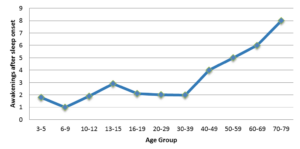No products in the cart.
Uncategorised
The Best Approach to Sleep for Every Personality
Who would like REGULAR, GOOD QUALITY SLEEP….. Give me a YEH!!!! I’ll come back to this in a few moments.
But first….
Our 3-year-old Golden Retriever – Ben, competed in a dog show on Sunday evening.

On this occasion, he didn’t do particularly well. Wife asked me why? I said he was probably tired because it was an evening show.
Then during the week, one of my long-standing clients mentioned that he’d recently been experiencing poor-quality sleep, resulting in constant yawning and ‘brain fog’ throughout the day.
The thing is…. SLEEP IS THE FOUNDATION TO EVERYTHING!!!!
When I first meet and assess a new client, there are 4 issues we discuss:
- Sleep
- Mindset
- Nutrition
- Exercise
SLEEP is top of the tree…… without it, the other 3 issues simply fall apart.
So today, let me share the 3 factors that regulate your sleep. And then armed with the info, will potentially help you be the best version of yourself.
Let’s set the foundation. Check out this graph that shows, according to age, how many times you are expected to wake up during your sleep:

As you can see, the older we get, the less sleep we have.
Let’s tackle these issues. There are 3 factors that regulate sleep:
- Your sleep drive
- Your Circadian rhythm
- Your arousal levels
SLEEP DRIVE
Your sleep drive is like your appetite for sleep. When you wake up, your sleep drive is at its lowest and it gradually increases as the day goes on.
The main behavior that WEAKENS sleep drive is napping. You can think of this as having a snack before you go out to dinner. In that situation, your appetite is reduced so you don’t feel as hungry for dinner. Similarly, when you nap or doze, your “sleep appetite” is reduced for your main sleep in the nighttime.
CIRCADIAN RHYTHM
The second process that regulates your sleep is your Circadian Rhythm.
This is your internal biological clock that regulates many of your bodily processes such as digestion, body temp, and sleep.
This clock works for approximately a 24-hour period. Irregular sleep schedules weaken our internal clock, which is why it’s helpful to keep regular wake times.
Waking up the same time each day, including weekends, no matter how poorly you’ve slept the night before is the most important thing you can do to keep your circadian rhythm…… in rhythm.
AROUSAL LEVELS
Or otherwise classed as CONDITIONAL INSOMNIA. Many people with ‘sleep challenges develop an association between going to bed and not sleeping. Then, going to bed becomes a trigger for worry and frustration about not sleeping.
This, of course, increases arousal making it harder to sleep.
There are 2 types of thoughts that affect your sleep:
- General worry – worry about things that are causing you to stress, like work and family; and
- Sleep worry – worry about the consequences of not sleeping
Here are some sleep hygiene ideas that will help:
- Get things off your mind – write down or voice record any issues that are on your mind.
- Set your alarm clock… or two.
- Set your room temperature (cool but not cold)
- No tv or devices causing light to your eyes whilst in bed (Block out all light)
- Avoid consuming a big meal before bedtime
- Infuse your pillow with lavender spray.
Only you know what type of sleep you are having…….
If you know it needs to be improved. And /or you want to feel good about the body you’re in!
Simply hit REPLY NOW with the wordSLEEP and I will set a plan in motion that will include effective exercise and nutrition plan.
Keep pumpin’


